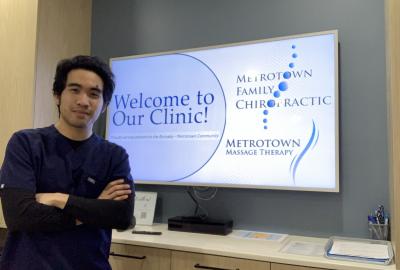
My first co-op was a government position, where I spent most of my time doing historical research, booking travel for my boss, and drafting reports. When I left, I found myself craving more hands-on, community-oriented work. I wanted my energy and work to have a positive impact on the community around me. The non-profit industry seemed like an obvious choice, and I turned to myExperience and Indeed to find a new job – only to be disappointed. Firstly, these sites didn’t offer many non-profit positions. Secondly, the few non-profit posts asked for years of previous experience in the non-profit industry, including experience in client-relations, grant writing, and trauma-informed practices. None of which I had at the time. Now, a year later, I have found a self-directed co-op position in the non-profit industry that is hands-on and community-oriented – I love it. How did I get here? How can you get here? This article outlines my tips for those looking to find their own self-directed co-op and break into the non-profit industry with no experience.
What are you interested in? Do you want to work with women? Youth or children? People who are homeless? Recent immigrants to Canada? Aboriginal people? Sex workers? Focus in on what you feel most passionate about and do research to make a list of local organizations that do that kind of work or serve that demographic.
Many non-profit organizations have a small staff community, and thus, those staff tend to wear many hats. A varied background and skill set can be a major asset. Comb through your previous experience looking for skills that could be helpful to a non-profit organization. Have you worked in a busy restaurant or coffee shop? You know how to keep calm and execute tasks in a high stress environment. Have you worked remotely and independently during the pandemic? You’re a self-motivator and independent worker. Do you get good grades on essays and verbal presentations in class? You have excellent written and verbal communication skills. Are you the “therapist friend” in your friend group? You have experience with active listening and providing emotional support. These are all high-value skills in non-profit.
If your friends work in non-profit, ask them how they got to their current position or organization. Ask them about the skills they highlighted in their resume and interview. Importantly: ask them if their organization is hiring or looking for volunteers, or if any of their co-workers are leaving their positions soon. You never know who has connections where until you ask!
Communicate to your advisor that you’re interested in finding a self-directed co-op in the nonprofit industry, and you’re not feeling like myExperience is offering good fits for you. This way, they can keep an eye out for opportunities, as well as provide tips for your job hunt.
CharityVillage helps connect non-profit and charity organizations with potential employees – it’s like Indeed, but specifically for non-profit. You can search organizations and keywords, and sort positions based on the city you’re in and remote vs. on-site work.
Consider adding an “Interests” section to your resume to outline the causes you feel most passionate about.
Non-profit employers want authentic, genuine, interested employees. You will undoubtedly be asked why you want to work for the employer or why you’re interested in the social cause. Prepare a response outlining how you became interested in the social cause, any personal connections, and the impact you would like to have
When I interviewed for my first co-op position, a government job, the interview largely focused in on how my skills and experience could be an asset to the team – I didn’t need to know anything about the branch or their work in advance. Non-profit interviews are different; in most interviews, I was asked about the pillars or core values of the organization I was interviewing with. An example question is: “Which of our core values do you feel you exemplify the most and why?”. Imagine how embarrassing it would be to respond: “I don’t know your core values”. Ensure you do your research on the organization beforehand, and take notes of their values, missions, pillars, etc.
While I was looking for a self-directed co-op, I cold-called – well, cold-emailed – a lot of organizations, and eventually, it led to getting a volunteer position that allowed me to gain the skills for a future self-directed co-op. Though this initial position was un-paid, and thus, not a co-op, it allowed me to get a co-op position eight months later. Generally, I would find the contact information for an organization I’m interested in on their website. Then, I would send them a brief email explaining that I’m a student at SFU interested in a co-op work term with their organization and ask if they’ve considered hiring a student or if there are any open positions that would be suitable for a co-op student. I end the email asking to be added to their newsletter or hiring notices to keep in touch. You never know what’s available until you ask!
Though un-paid and volunteer work will not count as a co-op position, sometimes you have to play the long-game and plan to reach your end goal of a non-profit, self-directed co-op in a few months or a year. My first non-profit job was an unpaid position at a crisis call line, which I gained through “cold-emailing” an organization I liked. I didn’t have relevant experience, but I focused on my transferable skills, and was offered a position. They provided some minimal training and resources, and I worked once a week for eight hours for a total of eight months. I viewed this position as my “foot-in-the-door” of the non-profit world, as a “steppingstone”, and thus, learned everything I possibly could during the eight months, including client support skills, resource-gathering, and problem-solving. I then beefed up my resume with the new skills and experiences I had acquired and began the searching process again, but this time, for a paid coop position: cold-calling, networking, interview prep, etc.
If unpaid work is not an option for you – understandable! – then try finding a low-level position at a non-profit you like and working your way up the ladder over time to gain the necessary skills. This low-level position could be part-time, or a full-time co-op.


















